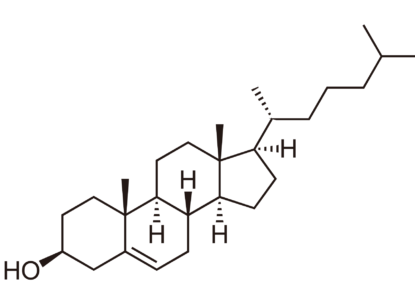Study: Aspirin’s Heart Health Benefits Hinge on Genetics
Article at a Glance
- Baby aspirin is no longer recommended to the general public to prevent heart attack and stroke.
- However, carriers of the “C” allele for rs3798220, which often means elevated Lp(a) levels, could benefit from Aspirin to reduce the risk heart of cardiac events, according to the ASPREE Trial and Women’s Health Study.
- It is important to note that the applicability of the findings are limited to individuals of European descent.
- Never begin an aspirin regimen without first consulting a physician.
Genes Mentioned

Contents
In the realm of heart health, two key players emerge: aspirin and lipoprotein a – Lp(a).
Baby Aspirin was long been recommended for those with a history of cardiovascular disease (secondary prevention), but the concensus view is changing, with aspirin recommended for people experiencing a heart attack or stroke, but not for prevention.
For more, see this Cleveland Clinic blog post: Should You Take Daily Aspirin?
Lp(a) is a type of atherogenic lipoprotein that is hereditary. In addition to APOB, Lp(a) carries an additional protein called apolipoprotein(a), which bears a resemblance to plasminogen, a natural clot-busting substance.
Now, here’s where the story gets intriguing. Scientists have taken notice of how aspirin and Lp(a) operate in our bodies. They’ve proposed a potential partnership – using aspirin for individuals with elevated Lp(a) levels (with lower risk of bleeding) who haven’t encountered heart problems before (Primary prevention). This duo might just be the key to preventing heart issues down the road, making our cardiovascular health journey a smoother and safer one.
Using Lipoprotein (a) Genetics to Predict Response to Aspirin
Lipoprotein A, known as Lp(a), is largely influenced by our genes. In fact, most of the Lp(a) levels in our blood are determined by our genetics, making up about 70% to even more than 90% of serum particle count. 1
One specific gene variant called rs3798220, found on the LPA gene, has consistently been linked to high Lp(a) levels and a greater risk of heart problems. 2 Scientists are studying whether people who have the “C” allele of rs3798220, which might mean higher Lp(a) levels, could benefit more from taking Aspirin to prevent heart problems.
In this blog, we’ll delve into two significant studies: the ASPREE trial from 2018 and WHS from 2009. These studies have investigated the link between Lp(a) genetics, Aspirin, and heart conditions. We’ll explore the discoveries made in these studies and consider how their results could affect the use of Aspirin as a treatment for heart-related problems.
The ASPREE trial
A brief overview of trial
The ASPREE trial, short for “Aspirin in Reducing Events in the Elderly,” was a randomized double-blind, placebo-controlled trial looking at whether taking a low-dose aspirin (100mg) every day could help older adults (19,114 individuals), aged 70 and up, avoid serious heart problems like heart attacks and strokes, especially if they hadn’t had these issues before. 3 It aimed to see if aspirin could keep them healthier. However, the final results of the ASPREE trial didn’t show a big decrease in heart problems with aspirin. Instead, it found that taking aspirin led to more cases of serious bleeding.
Genetic study
The genetic study with 12815 genotyped individuals aimed to evaluate the occurrence of major adverse cardiovascular events (MACE), which include serious heart problems, as well as clinically significant bleeding (CSB) events, such as major bleeding incidents for rs3798220-C carriers compared to noncarriers. 4 The authors of the study used two groups to study the effect of the SNP: one group got a fake treatment with nothing in it (the placebo group), and the other group got Aspirin.
Risk of MACE
In the group of people who received a fake treatment (the placebo group), having the rs3798220-C allele made them almost twice as likely to have heart problem (MACE) compared to those without the gene (HR (Hazard’s ratio): 1.90).
However, in the group that took Aspirin, the risk of heart problems (MACE) for those with the rs3798220-C allele wasn’t significantly different from those without it (HR: 0.54).
The interaction between having the rs3798220-C allele and receiving Aspirin was significant when looking at the entire group of participants. This means that the way the rs3798220-C allele affects people’s risk of heart problems (MACE) is influenced by whether they take Aspirin or not.
Risk of CSB
Being assigned to take aspirin led to more major bleeding events (CSB) happening among all the people in the ASPREE study. The risk of these events was about 1.33 times higher for those taking aspirin compared to those who weren’t (HR: 1.33).
Surprisingly, having the rs3798220-C allele didn’t show a significant link to a higher risk of major bleeding events, whether people were taking Aspirin or the fake treatment.
And when we looked at everyone in the study, there wasn’t a significant connection between having this SNP and the risk of bleeding (CSB).
Number of MACE and CSB events
In everyone who took part in the study, aspirin reduced the risk of heart problems (MACE) by 1.7 events for every 1,000 people over a year, but it also increased the risk of bleeding problems (CSB) by the same amount, which balanced out to no net difference in overall events.
However, in a specific group of people with the rs3798220-C allele, aspirin had a much more significant effect. It reduced the risk of heart problems by a lot (11.4 events per 1,000 people per year), which was more than six times the reduction seen in the whole group. At the same time, it increased the risk of bleeding, but not as much (3.3 events per 1,000 people per year). So, in this gene group, aspirin seemed to have a net benefit of 8.1 events per 1,000 people per year, meaning it provided more benefits than risks.
The Women’s Health Study Trial
A brief overview of trial
Unlike the ASPREE trial, the Women’s Health Study (WHS) trial gave participants (25,131 individuals)100mg of Aspirin every other day for 10 years. 2 Additionally, the WHS focused exclusively on women aged 45 and older. Furthermore, the study benefited from being able to measure lipoprotein levels, which could complement the genetic data.
Genetic study – rs3798220 and lipoprotein levels
The study noted a substantial impact of the rs3798220 genetic variant on lipoprotein levels. The median Lp(a) levels in individuals carrying one copy of the minor allele C (heterozygous) were eight times higher while those carrying two copies of minor allele C (homozygous) were 15 times higher compared to individuals who didn’t have the minor allele C. 5
- CC: 153.9 mg/dL in 15 individuals
- TC: 79.5 mg/dL in 906 individuals
- TT: 10.0 mg/dL in 24204 individuals
Risk of major cardiovascular event
Women who had high levels of Lp(a) in their blood (more than 44.0 mg/dL) were 1.47 times more likely to experience major cardiovascular events compared to women with lower levels of Lp(a) (<3.4 mg/dL).
In the group of women who received a fake treatment (the placebo group), women who had one or more copies of the rs3798220-C allele had a roughly 2-fold greater risk of experiencing major cardiovascular events compared to those who didn’t have this allele (HR:2.2).
For women with the rs3798220-C allele, taking aspirin instead of a placebo reduced their risk of major heart problems by 56%, which means they were less likely to have these issues (HR:0.44). On the other hand, for those without the rs3798220-C allele, aspirin didn’t show a significant reduction in the risk of major heart problems (HR:0.91). The interaction between having the rs3798220-C allele and receiving Aspirin was significant when looking at the entire group of participants.
Risk of bleeding
Women with higher levels of Lp(a) didn’t show an increased risk of bleeding, possibly because of the blood clot-promoting characteristics of Lp(a).
Strengths and weaknesses of the trials
Strengths of the WHS and ASPREE
- Use of placebo group alongside the aspirin group to reduce any bias in participant selection.
- Use of a well-defined group of participants who hadn’t experienced any previous CVD.
- A large number of participants with genetic data available.
- Meticulous assessment of the study’s outcomes, including both CVD and bleeding events.
Limitation of the WHS and ASPREE
The occurrence and biological impact of rs3798220-C allele may differ based on genetic
ancestry, which restricts the applicability of the findings to individuals of European
descent.
Conclusion
Both studies indicate that low-dose aspirin therapy might be advantageous for individuals carrying the C-allele of rs3798220 in individuals with no previous history of CVD. In such individuals, the potential advantages of aspirin may surpass the risks linked to significant bleeding events. These studies hint at the wider potential for delivering healthcare in a more precise manner by tailoring treatments based on an individual’s genetic makeup.



